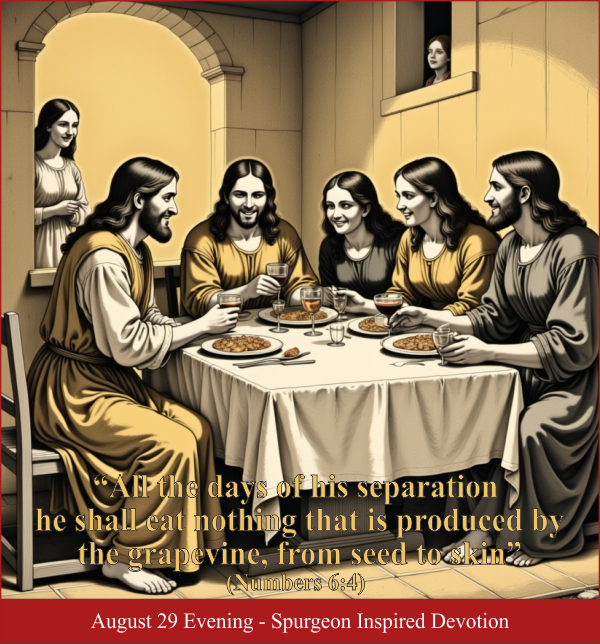
| August 29 Evening Devotion |
|
|
|
Men and women who took the Nazarite vow, abstained from alcohol. In order to assure the integrity of the vow, they weren’t allowed any product of the vine; they were, in fact, to avoid the appearance of evil. This is a lesson for saints. The Apostle Paul taught more than anyone about “freedom of the Spirit”. “Now the Lord is the Spirit; and where the Spirit of the Lord is, there is liberty”. But he was speaking about the freedom to approach God without fear. “We all, with unveiled face, beholding as in a mirror the glory of the Lord, are being transformed into the same image from glory to glory, just as by the Spirit of the Lord” (2 Corinthians 3:17-18). When it came to the freedom to eat and drink whatever you want, he cautioned against stumbling saints that thought eating or drinking something was a sin. “Beware lest somehow this liberty of yours become a stumbling block to those who are weak ... if food makes my brother stumble, I will never again eat meat, lest I make my brother stumble” (1 Corinthians 8:9-13). The strict walk is much despised these days, but rest assured, dear reader, it’s both the safest and the happiest. He who yields a point or two to the world is in fearful peril; he who eats the grapes of Sodom, may be seen as drinking the wine of Gomorrah. Worldly conformity, in any degree, is a snare to the soul, and can lead to presumptuous sins. The Nazarite who drank grape juice could never be sure it didn’t have some alcohol in it, and consequently, he couldn’t be sure his vow was kept. If you drink alcohol in public, you could never be sure a brother didn’t see you. And if you drink alcohol only at home, what if a brother asks you flat out, “do you drink alcohol?”. When there’s even a slight chance of stumbling a brother, is it worth it? Isn’t it better to be labeled a Puritan, than to have any doubt? Careful walking may involve much self-denial, but a clear conscience is more than sufficient recompense. |
| 📧Get daily devotionals directly your email box.📧 |
 |